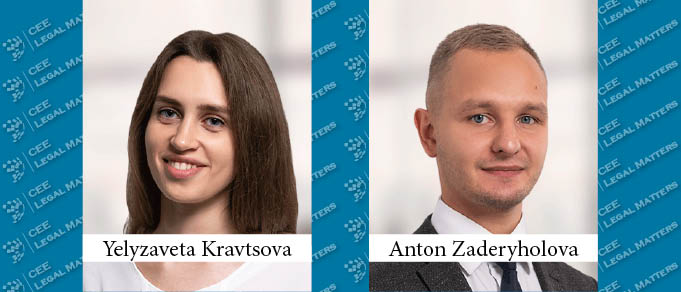On 23 May 2020, Law of Ukraine “On Amendments to the Tax Code of Ukraine Aimed to Improve Tax Administration, Eliminate Technical and Logical Inconsistencies in Tax Legislation” No. 466-IX, dated 16 January 2020 (“Law”), came into force. The Law implements changes to tax legislation, including recommendations under the OECD Action Plan on Base Erosion and Profit Shifting (BEPS) and changes to tax administration procedures. Certain changes will come into force on 1 July 2020 and 1 January 2021.
New anti-avoidance rules
- Taxpayers may not apply benefits of double tax treaties if the main purpose of the transaction is to obtain such benefits (a General Anti-avoidance Rule).
- Tax authorities may disregard expenses incurred in transactions with non-residents if there is no business purpose in these transactions.
- The Law introduces controlled foreign companies (“CFC”) rules. CFCs are foreign legal entities and entities without legal personality including trusts and foundations. CFC’s income will be subject to corporate income tax or personal income tax in Ukraine as part of the income of the controlling person. The CFC rules will come into force on 1 January 2021.
- The Law changed the “thin capitalisation” rule. The new rule will test debt-to-equity ratio considering debt towards unrelated non-residents, will restrict deductibility of interest paid to resident lenders and will decrease the deductible interest threshold to 30% EBITDA.
- Some payments to non-residents would be treated as dividends that are subject to 15% withholding tax (“WHT”) (i.e. payments for redemption of shares or payments for goods/services in controlled transactions that are not at “arm’s length”).
- Resident entities should increase their taxable income for corporate income tax purposes by 30% of the value of the goods/services sold to the residents registered in low tax jurisdictions or fiscally transparent non-resident entities unless the prices in these transactions are at “arm’s length”.
Transfer pricing
- Taxpayers must substantiate in their transfer pricing (“TP”) documentation the economic and business purposes in controlled transactions such as purchase of works (services), intangible assets, and other types of business transactions other than purchaser goods.
- Entities will be deemed related parties if one entity owns a 25% share in another entity (as opposed to 20%). Under the Law, a joint venture and related parties of its participant that has a 25% share in the joint venture are treated as related parties.
- Taxpayers must report their participation in an international group of companies, including the aggregated consolidated income of the group for the previous financial year.
- Taxpayers must submit global TP documentation (the master file) at tax authorities’ request if the aggregated consolidated income of the international group of companies for the previous financial year is EUR50 million or more.
- Taxpayers must submit a TP report on a country-by-country basis if the aggregated consolidated income of the international group of companies for the previous financial year exceeds EUR750 million.
Withholding tax
- Income from disposal of shares in real estate rich companies is subject to WHT in Ukraine. Starting from 1 July 2020, if a non-resident pays such income to another non-resident that has no permanent establishment in Ukraine, the non-resident paying this income must register and pay WHT prior to such payment. The failure to pay WHT leads to a fine in the amount of 10-75% of the unpaid WHT.
- A person who transfers all income to a third party and does not have the resources (qualified personnel, fixed assets, sufficient equity etc.) to perform functions, use assets, and manage risks related to the received income may not be considered as the beneficial owner of such income for the purposes of double tax treaties.
- The Law establishes a mutual agreement procedure (“MAP”). A taxpayer may apply for MAP if the taxpayer considers that actions of the tax authorities of Ukraine or another country may result in taxation that contradicts the double tax treaty.
Permanent Establishment
- The Law expands the definition of a permanent establishment of a non-resident according to the BEPS Action Plan. For example, under the previous version of the Tax Code, a Ukrainian resident might have been recognised as a permanent establishment if it negotiated contracts only in favour of one non-resident. This definition allowed to avoid recognition of a permanent establishment if a Ukrainian resident negotiated contracts in favour of more than one non-resident. Under the Law, a Ukrainian resident may be recognised as a permanent establishment if it acts in favour of several related non-residents.
- Tax authorities can register permanent establishments operating without prior registration in the course of tax audits, as well as can seize the property of such permanent establishments.
Rent tax
- The Law repeals some adjustments of a rent tax for mining of off-balance mineral resources, including oil and condensate.
- Tax rates on iron, non-ferrous metals, and ironstone were increased.
- The price of realisation of mined mineral resources in controlled transactions may not be lower than the price under the “arm’s length” principle.
We expect that the Law may result in new tax risks for Ukrainian and international business. In this regard, we recommend you to review your corporate and operational structures to identify, analyse, and mitigate possible risks. We will be happy to assist you with these matters.
By Anton Zaderyholova, Senior Associate, Yelyzaveta Kravtsova, Associate, and Taisiia Duda, Associate, Avellum




